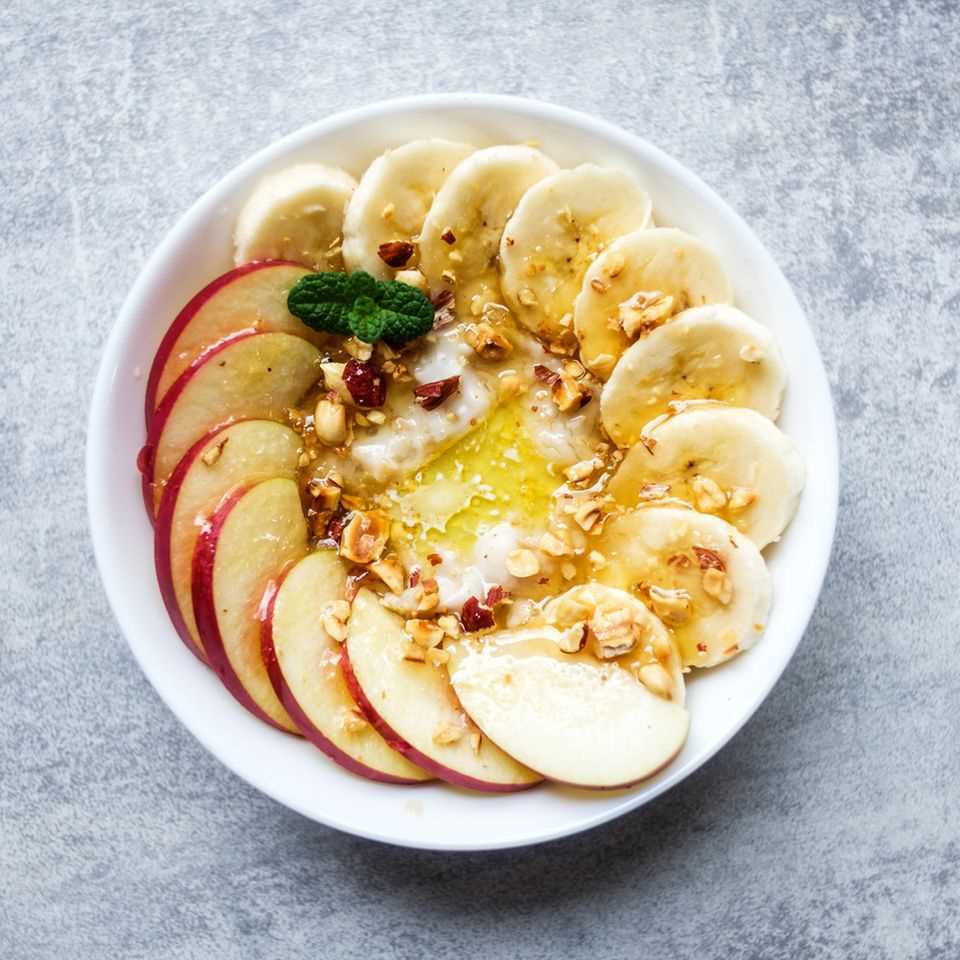The preparation is crucial
That’s why you shouldn’t eat oatmeal with cow’s milk
A popular breakfast: oatmeal with milk
© Dream79 / Shutterstock
Oatmeal is the perfect breakfast for many. Nevertheless, there is one important thing to consider when preparing it: the healthy whole grain cereal product should never be consumed with cow’s milk.
We all know it: Oatmeal is the ultimate superfood. Oats are considered one of the most valuable grains in our diet. The roughage, cell protectors and complex (healthy) carbohydrates make them a real superstar. Oatmeal provides energy and contains numerous essential vitamins and nutrients. They have a positive effect on cholesterol levels, keep our blood sugar constant, help with weight loss and make skin and hair shine. There’s nothing wrong with consuming oatmeal every day – unless you mix the healthy grains with cow’s milk.
This is what happens when you eat oatmeal with cow’s milk
1. Your skin becomes impure
Researchers from Harvard were able to prove that cow’s milk is directly related to impure skin and pimples. Cow’s milk influences the hormone balance, which in turn can stimulate sebum production. The skin’s sebaceous glands become clogged and pimples form. However, only if the animal milk is drunk or ingested through food.
2. You have a bloated stomach
Milk can cause bloating. This is due to the enzyme lactase contained in cow’s milk, which keeps the gastrointestinal tract on its toes. In particular, if there is a food intolerance, this becomes noticeable with a bloated stomach. Normally, the enzyme lactase breaks down the double sugar lactose (the milk sugar) into simple sugars. The lactose is then absorbed into the blood from the small intestine. If this enzyme is missing or not sufficiently available, the lactose reaches the large intestine unprocessed. There it is used as food by gas and acid-forming bacteria. Due to the acids formed by the bacteria, more water flows into the intestine and intestinal movement increases. Those affected suffer from flatulence, but diarrhea, a feeling of fullness and abdominal cramps can also be the result.
3. The absorption of iron is inhibited
Oatmeal contains about 5.4 milligrams of iron per 100 grams and is therefore an excellent source of iron. Iron is an important trace element. It is involved in many metabolic pathways in the body and is responsible for transporting oxygen. It also plays an important role in supplying cells with energy and fighting off infections. Women in particular should always make sure they have an adequate iron intake, as they lose more through blood loss during their periods. However, if the oatmeal is consumed with cow’s milk, the body can no longer properly absorb the iron. The reason for this is the calcium in milk, which blocks iron absorption.
Oatmeal with yogurt, tea or plant-based milk
Anyone who eats their oatmeal with cow’s milk can therefore expect side effects. However, no one has to go without their enjoyment in the morning, because the range of plant-based milk alternatives is large. Coconut milk, almond milk, rice milk, soy, oat or spelled milk – all of them can spice up our breakfast in the morning with relish.
Incidentally, oatmeal does not have to be consumed with milk. With water, a classic porridge is made from the oat flakes in no time. And even if you can’t imagine it: fruit) tea also tastes great with oatmeal. A great tip for anyone who wants to lose weight, because tea contains no calories, but enhances the taste of the meal.
Sources used: landeszentrum-bw.de, fuersie.de

